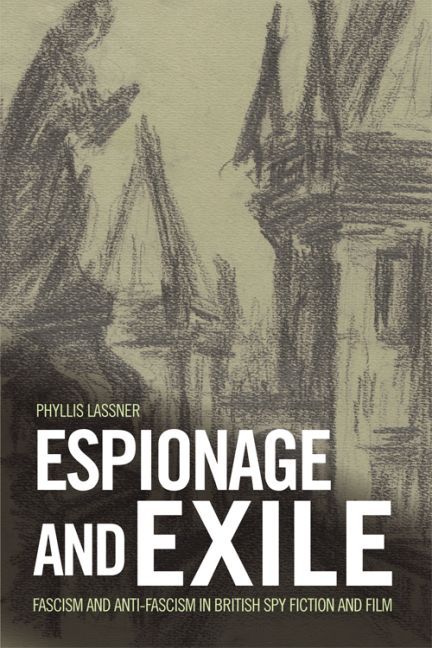Book contents
Conclusion
Published online by Cambridge University Press: 12 September 2017
Summary
The narrative and heuristic bridge connecting espionage fiction and exile is built on suspicion. Suspicion drives characters and plots and reigns as an over-determined metaphor, designating nations, organisations, ideologies and individuals as agents as well as objects of distrust. Espionage is driven by the anxiety that, institutionally or individually, the suspect contains secret knowledge portending danger to the subject. Because, however, secret intelligence invariably turns out to be only partially detectable at best and most often contradictory or distorted, it almost never leads to any conclusion other than to confirm the elusiveness of information or that of the suspect. This outcome intensifies mutual wariness, setting in motion a vicious cycle of espionage and counterespionage plots, each of which draws attention to the dubious value of the other. Distrust applies to protagonists and antagonists alike, including Ambler's Vadassy who will be a suspicious alien wherever he goes, or Frankau's Blessington whose identity and villainy remain mythically double-sided.
When suspicion is activated and becomes operative as espionage, it threatens violence – assassination, corporate conspiracy or among nations, war. But despite the historical and narrative power of armed conflict, military wars are not presented in spy thrillers directly, but as nightmares from the past or as ghosts bleeding into the future; they are absent in the fictional present. In these haunting espionage wars, victory is stalemated; nations and spies neither win nor lose. Instead, like secret intelligence, espionage violence and its outcome remain ambiguous and therefore unconfirmed, narrated between the lines, offstage or fleetingly. It also remains unclear whether espionage is even a primary or definitive action or subsidiary to suspicion. Which comes first – espionage or suspicion?
Suspicion occupies an unsettling narrative space where the home front is experienced as no less dangerous than the battlefield, as in Matthew Gilroy's Yorkshire home and garden in Colonel Blessington or Smiley's home in Call for the Dead. Symbolising that threat, settings in espionage fiction are enacted in claustrophobic spaces, such as the Nuremberg streets and alleys in Above Suspicion. In the same novel, even the vast range of the Dolomites closes in on the protagonists, metonymically reflecting Nazi oppression. These Gothic Expressionist figurations indicate that fictional espionage wars are fought outside the mimetic conventions through which real politics are historically recorded and represented.
- Type
- Chapter
- Information
- Espionage and ExileFascism and Anti-Fascism in British Spy Fiction and Film, pp. 217 - 222Publisher: Edinburgh University PressPrint publication year: 2016

